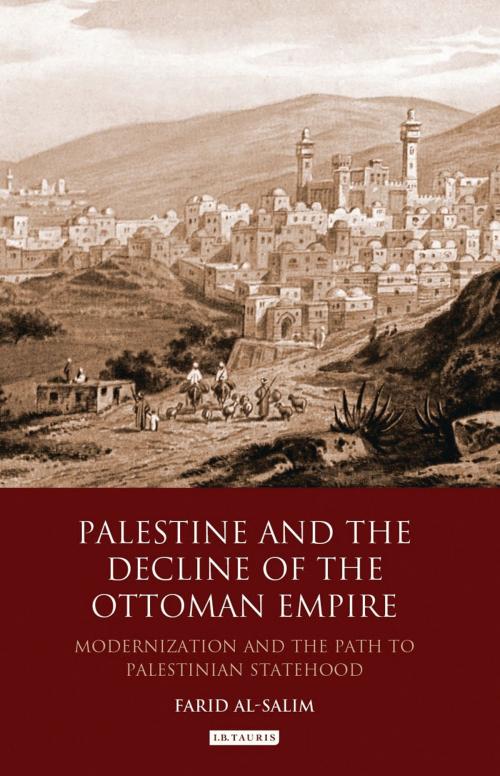Palestine and the Decline of the Ottoman Empire
Modernization and the Path to Palestinian Statehood
Nonfiction, Social & Cultural Studies, Political Science, Politics, Practical Politics, History| Author: | Farid Al-Salim | ISBN: | 9780857737199 |
| Publisher: | Bloomsbury Publishing | Publication: | April 7, 2015 |
| Imprint: | I.B. Tauris | Language: | English |
| Author: | Farid Al-Salim |
| ISBN: | 9780857737199 |
| Publisher: | Bloomsbury Publishing |
| Publication: | April 7, 2015 |
| Imprint: | I.B. Tauris |
| Language: | English |
During the final decades of Ottoman rule, Palestine was administratively divided into two states, Jerusalem and Beirut. Both provinces exhibited a strikingly cohesive history of modernisation, and as the Ottoman Empire began to recede, the education systems, taxation and bureaucracy which were left behind formed the foundation of administration in the Palestinian authority today. The reign of Sultan Abdülmecid I saw great changes in Palestine, in line with the Tanzimat reform programme including the monetisation of the economy, structural changes in land ownership, legal reform, moves towards Ottoman centralisation and the first European immigration to the area. At the heart of these radical shifts in thought and infrastructure were the new administrative centres established by the Ottomans during this period of re-organisation. Drawing extensively on official Ottoman records, Al-Salim charts the transformation of one such centre, Tulkarm, from a small village in central Palestine to a seat of administrative reform in order to provide a new account of the forces behind the formation of modern Palestine.
During the final decades of Ottoman rule, Palestine was administratively divided into two states, Jerusalem and Beirut. Both provinces exhibited a strikingly cohesive history of modernisation, and as the Ottoman Empire began to recede, the education systems, taxation and bureaucracy which were left behind formed the foundation of administration in the Palestinian authority today. The reign of Sultan Abdülmecid I saw great changes in Palestine, in line with the Tanzimat reform programme including the monetisation of the economy, structural changes in land ownership, legal reform, moves towards Ottoman centralisation and the first European immigration to the area. At the heart of these radical shifts in thought and infrastructure were the new administrative centres established by the Ottomans during this period of re-organisation. Drawing extensively on official Ottoman records, Al-Salim charts the transformation of one such centre, Tulkarm, from a small village in central Palestine to a seat of administrative reform in order to provide a new account of the forces behind the formation of modern Palestine.















